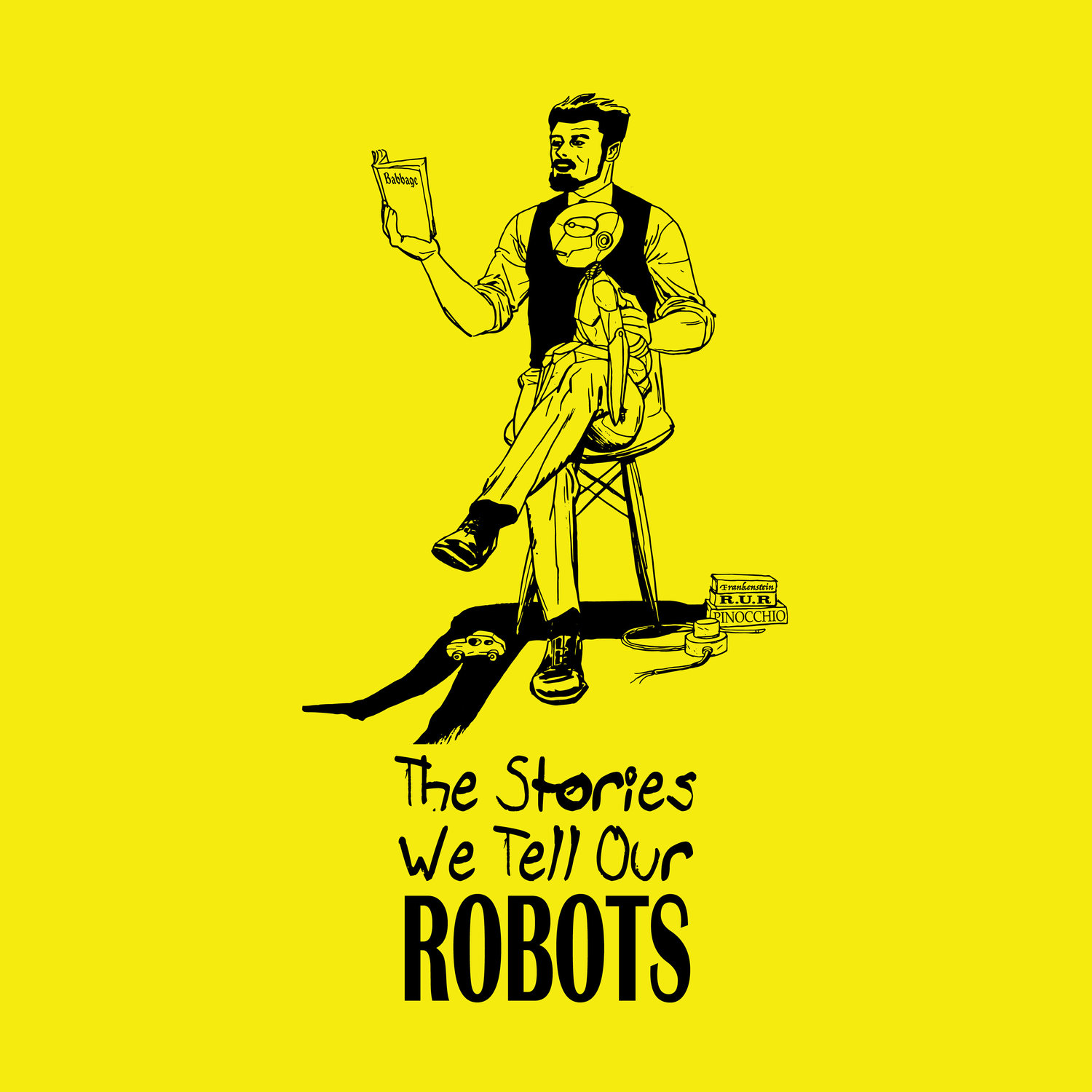Tuesday
I invoke a father’s privilege today to alert you to a weekly (sometimes biweekly) podcast called The Stories Our Robots Tell Us, hosted by my two sons. The podcast, which is about “how we make technology and how our technology makes us,” deals with such subjects as bitcoin, chatbots, credit ratings, airline pricing, tech start-ups and the like. I write about it here because the episodes often start off with a literary reference, Dr. Toby Wilson-Bates (a.k.a. Toby) being a lecturer in Georgia Tech’s English Department.
Toby brings a fascinating perspective to the current conversation about technology and its evolution. (His dissertation, which I’ve posted on here and here, studied how Victorian literature was born out of the industrial revolution, while also informing the direction of technological advancement during that period.) He brings that same conceptual perspective to this latest period of technological evolution and how our stories and narratives continue to define our technology.
Darien, meanwhile, recently left a financial technology firm in D.C. to start a company that uses data and machine learning (i.e. “Artificial Intelligence”) to enable small businesses and organizations to communicate with their customers and audiences in better ways. On a side note: Darien was also the propelling force behind Better Living through Beowulf, which he designed and helped me set in motion.
To give you a taste of the podcast, Darien and Toby begin the most recent episode on tech start-ups—“Two Guys and a Garage: The Myth of Failure”—with the story of Daedalus and Icarus. In this case, a spectacular achievement (human flight) is coupled with a spectacular failure (Icarus’s death).(Hmm, sounds like Facebook.) In each episode, they ponder whether the development under discussion will lead to utopia or apocalypse, with each offering a numerical rating between 1 (apocalypse) and 10 (utopia).
I found myself particularly interested in the episode on predictive analytics, maybe because they cite Oedipus while assuring their listeners that they do not anticipate killing their father (whew!). Toby focused on the paradox of the oracle, wondering whether we invariably become Oedipus. That is to say, even accurately forecasting future disaster doesn’t mean that we will necessarily escape it. Needless to say, things don’t work out well for Oedipus. (“Spoiler alert!” Darien cries at this point in the podcast.) In other words, Greek fatalism would dictate an apocalyptic rating for predictive analytics.
The subsequent discussion ranges from predicting–but not preventing–climate change to following one’s favorite sports team, and without spoiling the climax, I can report that Darien’s final rating leans towards the utopian (he believes our predictive capabilities can help us change the future for the better) whereas Tobias is more ambivalent.
Darien traces predictive analytics back to shipping insurance in the late 17th century, which strikes me as right. The birth of modern science dates back to this period as well (Newton, Descartes, Francis Bacon), and the Right’s current suspicion of science and expertise—certainly concerning climate change but economics and social research as well—may represent a return to a kind of Greek fatalism when our future lay in the hands of supernatural deities. Some call this faith in God, others magical thinking.
As far as the podcast goes, I love watching the chemistry between Darien and Toby, especially their sense of humor. Watching them grow into smart, thoughtful adults and becoming best friends is all I could have dreamed of. Even when they talk about killing fathers.


